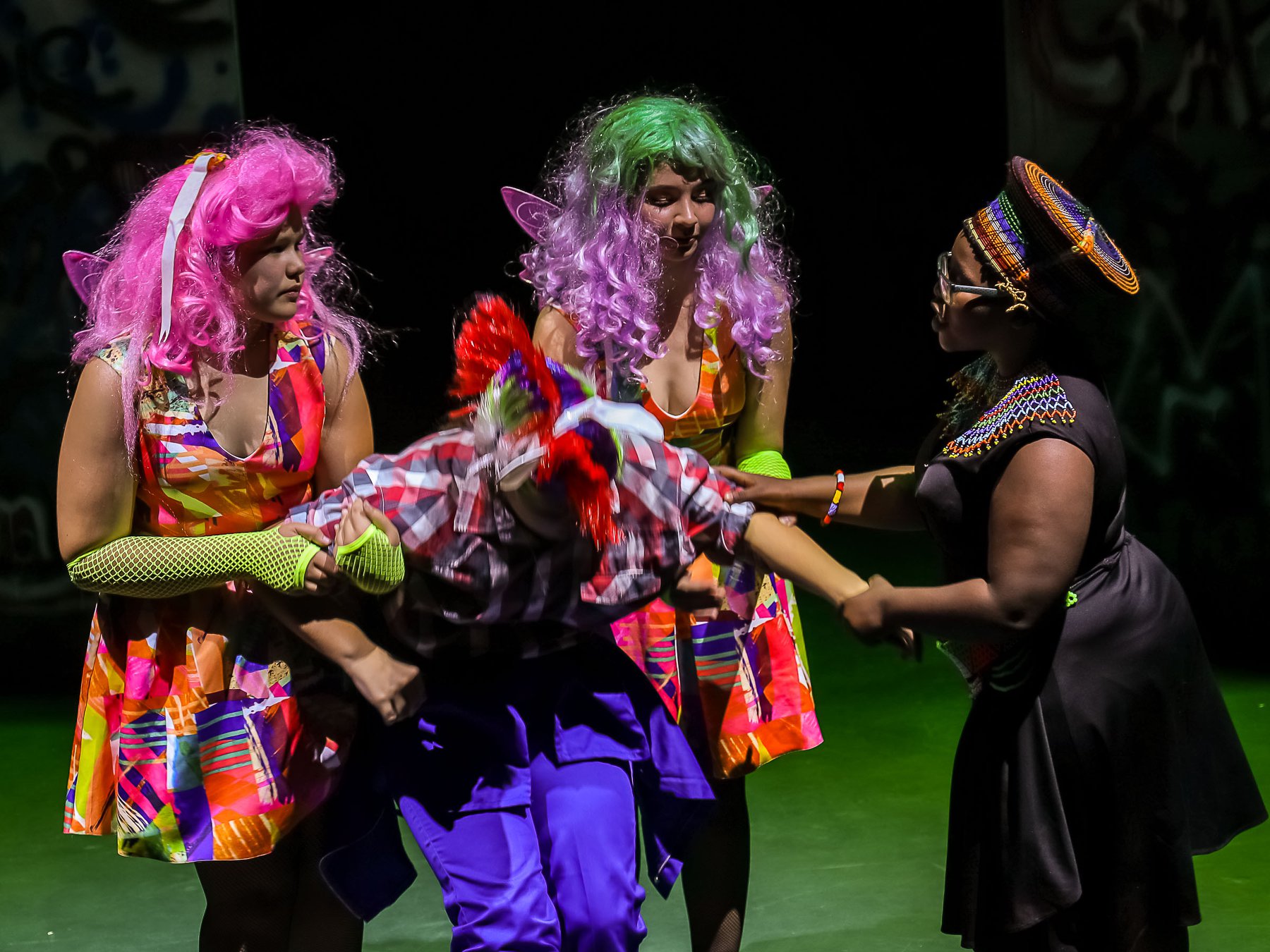
Shakespeare Schools Festival in desperate need of funding
Writing a request for funding is always a tricky exercise. (In fact, you may already have tuned out.) Everyone involved in a passion project – and there are many – believes their cause trumps all others. Be it for animals, children, the underprivileged, the disabled, education, health, social welfare… the list of worthy causes is endless and the source of funding for these projects is limited. The Shakespeare Schools Festival of South Africa is a particularly thorny one with many benefactors because it involves (the oft-dreaded) William Shakespeare. But let’s explore what the Shakespeare Schools Festival does and why Shakespeare is relevant in society today.
About the Shakespeare Schools Festival
Each year the Shakespeare Schools Festival presents a series of 30-minute shows performed by children aged 6 to 18 in a professional theatre. The shows are based on or adapted from the works of William Shakespeare. This format makes Shakespeare’s work far more accessible, both for the children and for their audiences.
The festival started in 2009 with a single performance of Twelfth Night at Wynberg Boys’ High School, which was the very first school to engage in the concept of 30-minute Shakespeare productions in Cape Town. It involved 15 children, one teacher-director and attracted 100 audience members.
The following year the official launch of the festival took place in Cape Town, with six schools performing at Artscape Theatre, and in Gauteng, with two pioneering schools taking onto the stage at Joburg Theatre.
The festival’s initial intention was to expose children to the workings of a professional theatre production – and that intention has not changed. What has changed is the scale of the festival. Since 2009, SSF SA has showcased 442 Shakespeare plays across South Africa, working with 9 158 learners from 455 schools. It has built the capacity of 608 teachers as drama and performance arts directors, 43 guest and student directors and 38 volunteer directors and facilitators. Over nine years the festival has attracted a combined audience 23 264 people around the country.
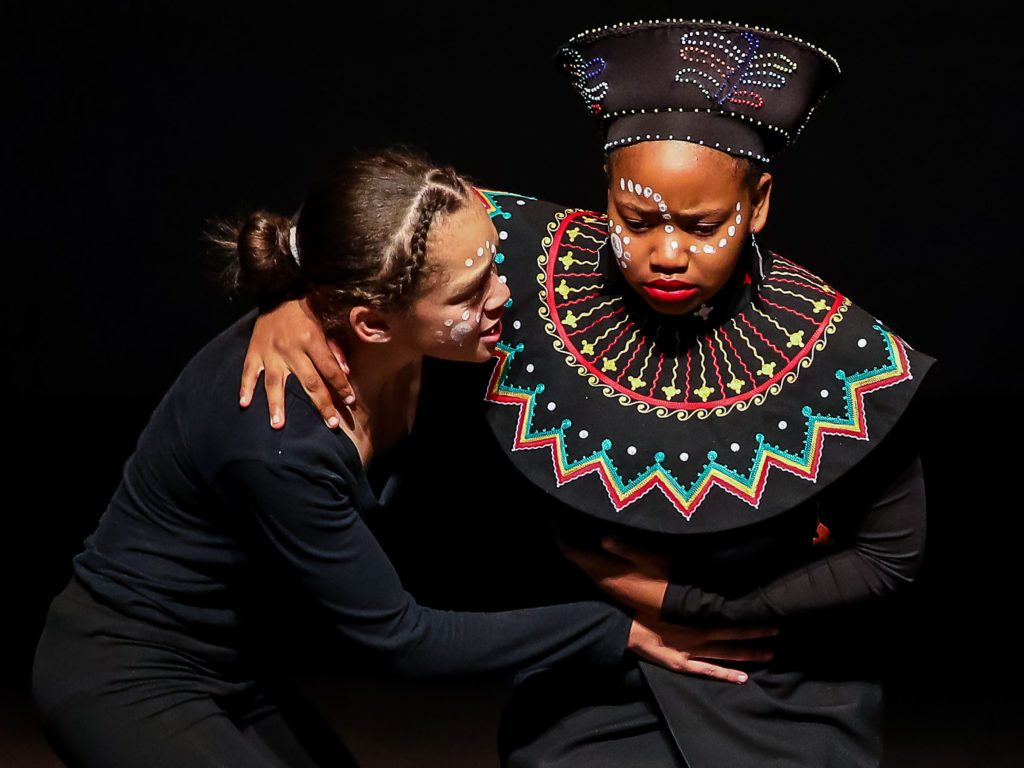
In 2019 alone, almost 1 400 children put on 70 plays in five cities across South Africa, attracting close to 3 000 audience members.
The intention of the festival is to add more plays and more cities in 2020 in celebration of its 10th anniversary.
Why Shakespeare?
The stories and the issues raised in Shakespeare’s works are as relevant and entertaining as they ever were, even here at the southern tip of Africa. The festival has adapted dozens of plays and seen performances in English, Afrikaans, isiZulu, isiXhosa and South African Sign Language.
One of the most amazing things about the festival is the level of inclusivity that it engenders. It has had children participating from all walks of life, levels of physical ability, race, gender, age, education level and gender identity. There has even been an entire performance put on by blind and visually impaired children. It’s heartening to see that kids don’t make a fuss of these issues. All they want to do is participate and do their best – and they do!
Shakespeare’s work is undoubtedly intellectual, yet still accessible. It exposes festival participants to new ideas and different ways of seeing the world. It requires teamwork, discipline and long hours of hard work. In return the kids are instilled with a sense of purpose; their confidence is boosted and there’s a feeling of great joy and pride for the participants, their teachers and their families. The positive impact of the festival at an individual and community level simply cannot be overstated.
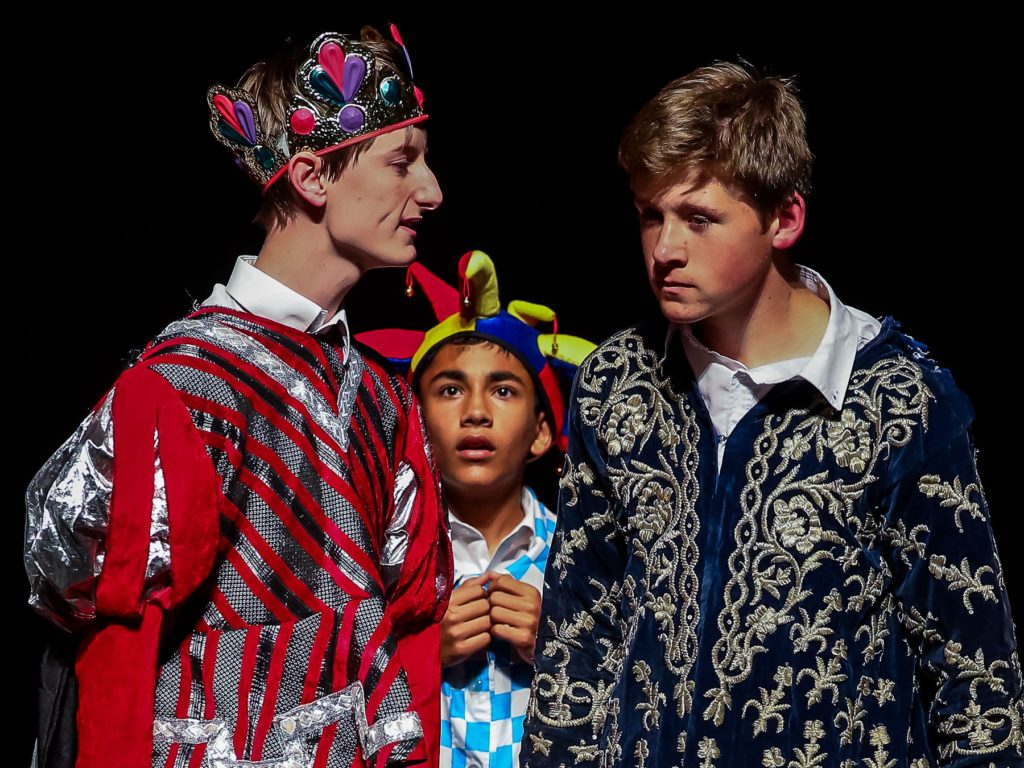
The role of the festival
The festival is a project of EduCape, which strives to unite children from diverse backgrounds in Southern Africa and empower them to transform their lives, using the unique power of theatre and the works of Shakespeare as the vehicle.
EduCape’s role is to serve as enablers for the learners, teachers and other community members involved in the productions.
Teachers report gaining value through SSF SA as an opportunity to develop skills in directing an ensemble of up to 30 students with varying abilities, while simultaneously providing practical experience in spoken English to students whose first language may not be English.
Some recent highlights
The Festival provides a platform for equal opportunity where there are no boundaries for participation. When Vista Nova School joined SSF SA in 2011, children with cerebral palsy, physical disabilities and other barriers to learning experienced the thrills of the stage. Centre for Science and Technology (COSAT) in Khayelitsha participants showed exceptional courage by stepping out of their comfort zones to explore themselves through the arts whilst surpassing their classmates in English during the period leading up to the festival.

One of the major highlights of the 2018 season of SSF SA was debut participation of differently abled schools, which included De La Bat School for deaf learners, Pioneer School for the visually impaired, and Adelaide Tambo School for physically challenged learners. EduCape plans to reach out to more schools that are geared for learners with disabilities.
The festival continues making Shakespeare relevant in South Africa by encouraging the schools to explore ways of creating unique productions that analyse current events, present cultural representation of various communities, as well as translating scripts into African languages. Examples include Pantsula stand-off from Imsebe Yelanga Arts Foundation in their version of Romeo and Juliet, and an isiZulu adaptation of Julius Caesar from Makhumbuzo High School in Durban in 2018.
During the festival run in Cape Town in 2019, a number of schools, including Leiden High School, Lalela Project, and The Untold Creatives, developed their plays in a translated version in Afrikaans and isiXhosa.
The need
In order to run at full capacity, the Shakespeare Schools Festival requires an income of approximately R1 million per year. As things stand, the festival is short R50 000 per month to meet running costs. If it is able to cover this shortfall it will help the group to remain sustainable and ensure growth into 2020.
The Shakespeare Schools Festival is a flagship project of registered Non Profit EduCape Trust IT174/2012, PBO N930046074. The organisation is fully compliant with recent Due Diligence certificate received from the Community Chest. Relevant documentation is available on request.
Current and past funders include the BNP Paribas Dream Up Foundation, the British Consulate General, the Learning Trust, B-Design Brand Management, RSN (Nussbaum Foundation) the Shakespeare Society of Southern Africa, the National Lotteries Commission and several theatres in major cities.
More information is available from the festival founder and director, Kseniya Filinova-Bruton on 021 531 2911 / 072 233 2074 / kseniya@educape.co.za.
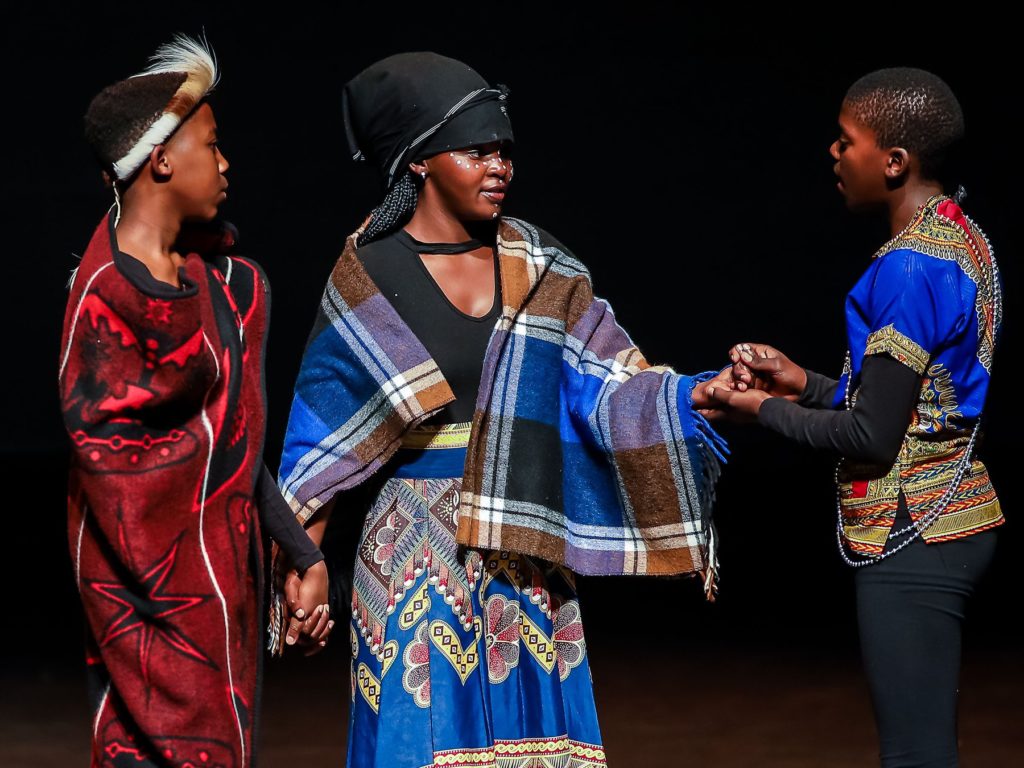
Testimonials
“The festival has helped us with building our confidence, in the way we speak and
pronounce. It has helped improve in our subjects especially English… We were able to
face our fears and just let go…” – Learner Bosmont Primary School, Johannesburg
“Festival restores a sense of purpose in the kids. There is complete revolution, in terms of attitude in the kids’ work ethic, commitment and respect.” – Darlington Sibanda, Chris Hani Arts and Culture Focus school, Cape Town
“We also thank you for the amazing platform, it’s always a pleasure to embark on this journey with everyone; the experience is out of this world.” – Sabatha Ngcobo, Art on Fleek Drama group, Durban
“This festival exemplifies what society has largely failed to do – it grows people positively: teaching them about themselves, others, acceptance and tolerance. As one of my Grade 11 learners said to me last night: ‘Thank you for letting us take part in the festival. I know we weren’t perfect, but I have never had so much fun!’ Another one of the boys – who was very much an introvert – has come out of his shell. He has now performed in the festival twice and is unrecognisable in terms of how much he has grown in confidence and, more importantly, self-acceptance.” – Tracy Kenyon, Teacher-Director, Graeme College, Makhanda
“I can’t thank you and your wonderful team at SSFSA enough for all your hard work and dedication to bringing #Shakespeare alive to teenagers and giving them the opportunity to experience the stage and being able to perform to an audience. My daughter has gained so much confidence from being able to be part of this Shakespeare festival and drama team. She attends Vista Nova High and she has dyslexia so learning is difficult. If she had continued at a mainstream school she would never have been given this opportunity to flourish, she might have stayed wrapped up in a cocoon and never known her full potential.” – Jenny Saunders-Warwick, parent, Cape Town
Photos by Mike Leresche
Visit the Shakespeare Schools Festival of South Africa website for more information. Follow the festival on Facebook and Twitter.
Use this QR code to make a donation:




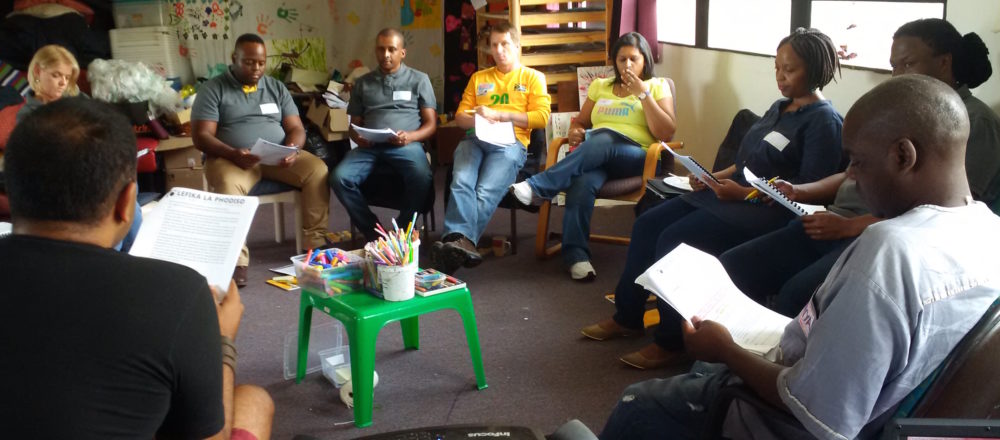
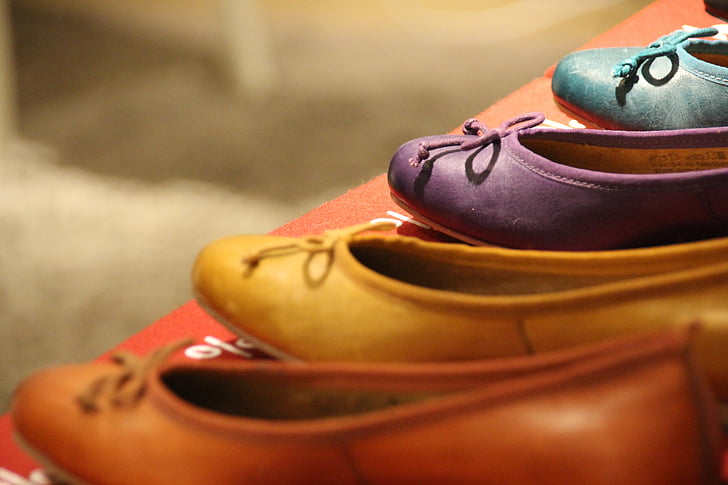
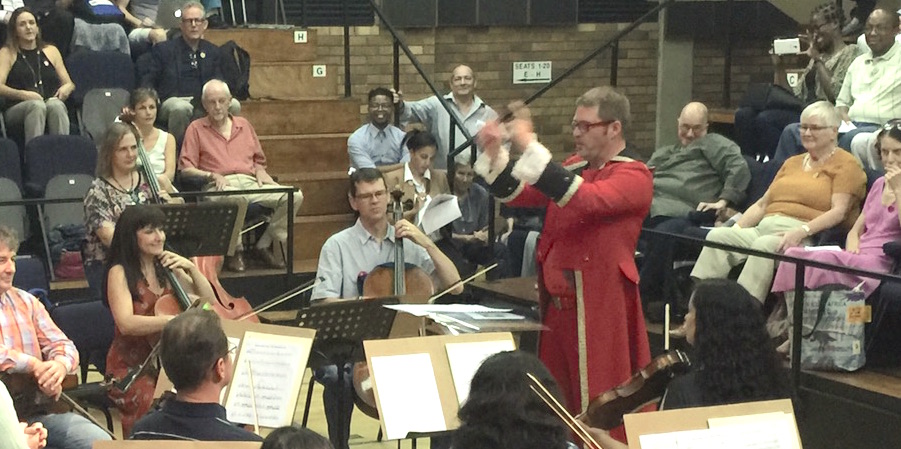

Leave a Reply